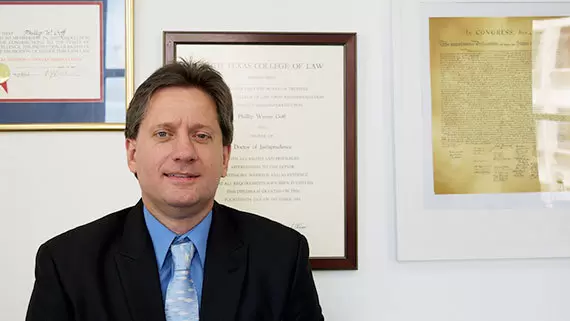
We criminal defense lawyers hear from many people from all walks of life. Many of the things we hear are the same. Most people are unfamiliar with the process or find it incredulous the legal system has significant flaws. Here are a few of the things we commonly hear.
1) “I’m not a bad person.”
Those of us who practice criminal law represent good people. We also represent bad people. We generally won’t “work harder” on a sliding scale of how “good” we think someone is. As advocates, we need to do the best we can do. This is true, even if we have little “good” to work with, and even if they are “bad” people. Criminal defense lawyers don’t limit their practices to defending only “good” people. The criminal defense lawyer who refuses to represent anyone who is guilty is a unicorn found only in fiction. I don’t have a “good person” test of some kind. Your goodness or “badness”, if either can even be defined at all, should have no affect on what an attorney will do to help you. “Bad” people deserve a good defense, just like a “good” people.
2) “The cop was a complete jerk the whole time/did something wrong or illegal/never listened to me/never gave me a chance/made up his mind before he even talked to me.” (And my case should be dismissed because of it.)
You may be 100% right about what happened. There may be justifiable outrage in how the cop behaved or spoke. While it may be galling, it rarely means you have a legal right to a dismissal. Certain kinds of acts, such as detaining a person without legal justification, can lead to evidence being excluded from your case. Rude, disrespectful, and even illegal actions on behalf of the police frequently result in no discipline against them; it will help your case about as rarely as they get in real trouble. The only good news is juries don’t like unfair, rude cops. A few prosecutors find it galling, too.
3) “I want to sue the cops/jail/magistrate/judge/prosecutor/probation.”
As rare as consequences are for cops who misbehave on duty, being able to successfully sue them is even more rare. It can be done, but it’s only in a tiny sliver of a percentage of cases. In most situations, “immunity” prevents you from suing the government at all. Even if you have a case which is not barred by immunity, extraordinarily few cases end up with a judgment against people employed in the criminal justice system. Literally millions of criminal cases are processed each year, and exceedingly rare circumstances would justify the cost of suing the government. Few cases would pay enough to make it worthwhile. Don’t expect an individual lawyer to sacrifice his/her practice to be a crusader without pay, either. Few lawyers are independently wealthy. Only a few lawyers ever sue anyone in the criminal “justice” system.
4) ‘I want them to pay your fee.” (Usually, this is after a “not guilty” by a jury or after a case is dismissed for insufficient evidence or other similar reason.)
Similar to #3, and even more remote, is the chance you can get any entity in the system to pay for your privately hired attorney fee. If it were a real thing, it would quickly bankrupt the entire government. It isn’t worth a discussion. You would need to be completely exonerated, at a minimum. Even when people are formally declared innocent after conviction, many prosecutors still want to further victimize those same innocent people.
5) “The case I had was supposed to be wiped from my record.”
Typically, this is what many people think happens after a deferred adjudication, deferred disposition, dismissal, or pretrial diversion/pretrial intervention. That mistaken sentiment is so common about deferred adjudication, the Texas Legislature created a partial remedy called nondisclosure. If you successfully complete any of the programs listed, the next step remains to be executed. Criminal records don’t erase or hide themselves. Unless you file a lawsuit for a nondisclosure or expunction and have it granted, your arrest and court record will still be accessible by the public, including your prospective employers. That includes cases which were dismissed and even jury trials which ended with “not guilty” verdicts.